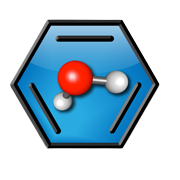The iQmol: The Antioxidant That Keeps The Doctor Away
The iQmol is a mixture of a chemical substance and another substance that protect its structure from damage caused by the damaging substances. This substance is called the dual-task compound and it was first manufactured by the Swiss company IBN in 1998.
The iQmol has already been approved for use in the United States by the FDA. However, it must be approved in Europe and Japan before it can be marketed in the United States. In the United States, the iQmol has only been approved for the treatment of cancers of the liver. A large number of people do not know about its potential benefits when combined with other medicines. Even though the drug has already been approved for use in the United States, it is still being studied as a potential cancer preventive or therapeutic agent.
The iQmol is said to be effective against some forms of cancer, but it is still being studied and tested on animals. It may also have the ability to prevent the development of tumors when it is combined with certain chemotherapy drugs. However, the drug should not be taken at the same time as certain medications. For instance, if a patient is taking a combination of chemotherapy drugs, he or she should not take the iQmol drug.
Some studies have shown that the iQmol can be used in conjunction with antibiotics to kill cancer cells. However, it has not yet been approved by the FDA. This drug can also slow down the growth of tumors by inhibiting the activity of the enzyme that breaks down the acetate in the liver. This enzyme is called acetyl-CoA mutase and its activity is essential for the development of acetaldehyde.
The iQmol is also able to inhibit the production of inflammatory substances by the body. These substances may contribute to the formation of tumors. However, this compound seems to have little effect on the blood supply. The drug is able to eliminate the formation of the protein aggregates that form in the arterial walls and in the blood vessels of the heart.
It has been found that the iQmol is able to stop the synthesis of the protein fibrinogen, which is known to cause the accumulation of clotted blood in arteries. It blocks the release of the enzyme that is responsible for the accumulation of the blood clots and it prevents the formation of calcium deposits in the heart valves. It may also stop the spread of infection and the accumulation of the protein fragments that cause inflammation of the kidney tubules.
The iQmol also has the ability to inhibit the activity of the T-cell receptor, which triggers the activation of T-cells. The protein complexes of the T-cell receptor are needed for the activity of T-cells that destroy infected cells.
The iQmol has been tested on animals and humans and it seems that it is safe. There have been no reports of serious side effects in any of the animal tests. However, human studies have not yet been carried out because the drug has not yet been approved by the FDA.
The blood test in mice showed that the iQmol reduces the amount of platelet activity, which leads to thrombocytopenia. In a laboratory test in rabbits, the drug was found to increase the amount of platelet activity. The drug may increase the platelet activity in some people with a high platelet count, although it did not have any effect in some patients with a low platelet count.
Some people are concerned about the possibility of using the drug as an anti-inflammatory drug. The drug has been found to lower platelets’ activity in some tests and in vitro experiments, but it does not appear to affect them in animals. This drug is not effective in reducing the activity of the white blood cells. However, there are no reports of iQmol slowing down the activity of the immune system, the main function of white blood cells.
The iQmol may slow down the production of prostaglandins, the chemicals that cause the pain and inflammation in joints. If the drug is taken along with other anti-inflammatory drugs, it might increase the release of enzymes in the kidneys that reduce joint inflammation. However, this is still being studied.

